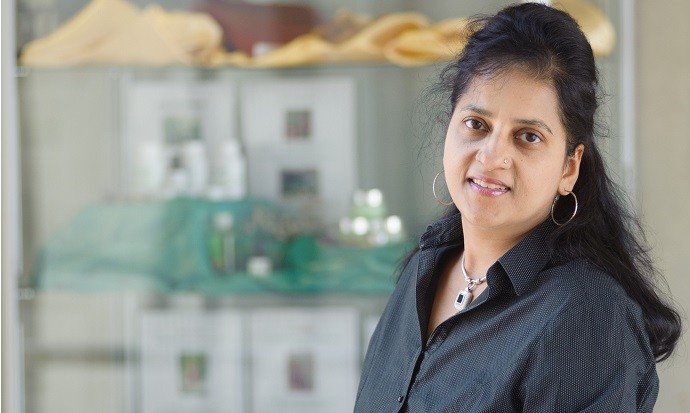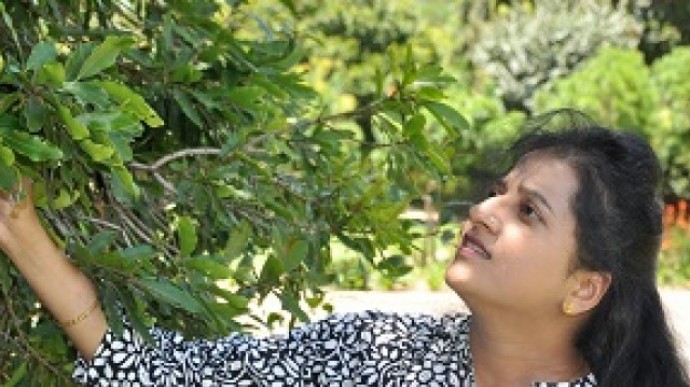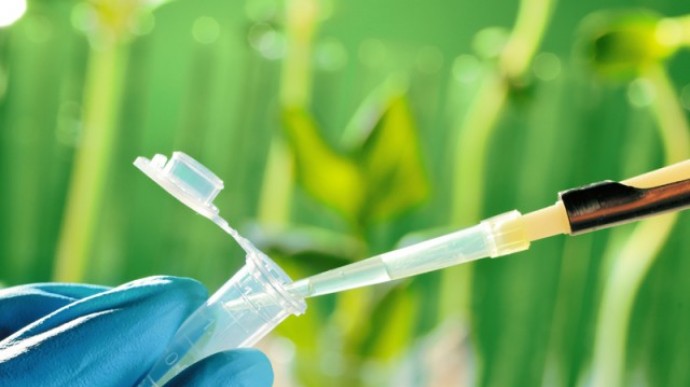
Professor Namrita Lall has been a researcher at the University of Pretoria (UP) since 1997. She completed her undergraduate studies at Walter Sisulu University, then known as the University of Transkei.
For Prof Lall, UP’s vision aligns with her own: to foster creative and innovative thinking and encourage academic freedom. She maintains that UP has a high standard of integrity, ethics and social justice, with the well-being of both staff and students being of utmost importance. “The University encourages not only academic research, contributing to the scientific body of knowledge, but also research with social impact, providing solutions to problems faced both nationally and for humanity globally,” she says.
UP’s primary goal as an institution of teaching and learning has allowed Prof Lall to impart knowledge to many of her postgraduate students through the University’s abundant access to infrastructure, its multidisciplinary approach to research, its entrepreneurial coaching programmes and its networks in the scientific community.
South Africa is home to about 10% of the world’s higher plant species, with approximately 65% of these being endemic to the country. The field of ethnopharmacology promotes and recognises the impact of indigenous knowledge systems and traditional medicine as important contributors to modern healthcare needs, particularly in a country with such a diverse cultural population. About 80% of the population still relies on traditional medicines as a form of primary healthcare. This field of research plays a particularly important role in drug discovery, and the identification of new drugs with pharmacological activity and commercial potential, not only in the field of healthcare, but also in the field of cosmeceuticals (cosmetic products with added medicinal benefits).
Prof Lall’s field of research contributes to the betterment of the world because it falls within the mandate of the National Biodiversity Act 10 (2004), which incorporates aspects of the global NAGOYA ProtocolBioprospecting, access and benefit-sharing initiatives of the National Biodiversity Act ensure that traditional knowledge holders are acknowledged and remunerated both non-monetarily and monetarily when any indigenous biological resource is commercialised.
Prof Lall holds the National Research Foundation (NRF) and Department of Science and Innovation South African Research Chair’s Initiative (DSI-SARChI) for the development of Plant Health Products from Indigenous Knowledge Systems. She has three main research focus areas:
Prof Lall is the coordinator of the DSI Cosmeceutical Consortium, which focuses on the commercialisation of various indigenous biological resources for cosmetic development, with products for skin diseases such as acne and skin hyperpigmentation, hair loss and eczema. Other aspects of this consortium involve cultivation, harvesting and metabolomic studies to determine the effects of different storage temperatures on chemical composition lead extracts.
In terms of cross-faculty research at UP, Prof Lall has worked with the School of Engineering to develop an optimal formulation for the incorporation of an SPF-boosting active ingredient. She has also worked with the Faculty of Veterinary Science to investigate the mutagenic potential of lead extracts using the Ames test, as well as the antioxidant and anti-inflammatory potential of Kigelia Africana (African sausage tree).
Recent milestones include the following:
“Over the past 18 months, we have been working to identify natural preservatives in indigenous biological resources that can be used in the preservation of cosmeceutical products,” Prof Lall adds.
She says her mother has been a significant inspiration, having nurtured her trust and interest in traditional medicines. In her youth, Prof Lall used alternative plant-based medicines for minor health problems such as indigestion and headaches.
Her academic role model is Prof Chung Ho Lin of the University of Missouri. “He is dynamic and motivates me to strive to uncover my true potential and overcome my weaknesses.”
Prof Lall’s dream is to see all the years of effort and hard work culminate in the commercialisation of the traditional medicines developed by her research team and see these products on the shelves. “I would also like to see more South African and African plants being commercialised nationally by a completely local supply chain – from researchers, manufacturers and formulators to the promotion of indigenous knowledge systems and traditional knowledge holders.”
Her research matters because it has a large impact on many different people:
Prof Lall’s advice to learners or undergraduates with an interest in the phytomedicine field is to talk to senior students, and to approach lecturers and researchers about shadowing or interning opportunities. It is through practical experience and exposure to the field that students will be able to gauge whether they are passionate about a particular career.
Prof Lall says she enjoys cooking and art in her free time.
 Story
Story
South Africa has tremendous plant diversity that is largely untapped in terms of its potential for medicinal and cosmeceutical purposes. With about 25 000 known species, this country is third only to Brazil and Indonesia as far as biodiversity is concerned. This constitutes about one tenth of all plant species in the world.
 Stories
Stories
An estimated 20 000 plant species are used medicinally today and a number of ingredients commonly used in modern medicine to treat serious diseases, originate from plant-based traditional medicine.
Copyright © University of Pretoria 2025. All rights reserved.
Get Social With Us
Download the UP Mobile App